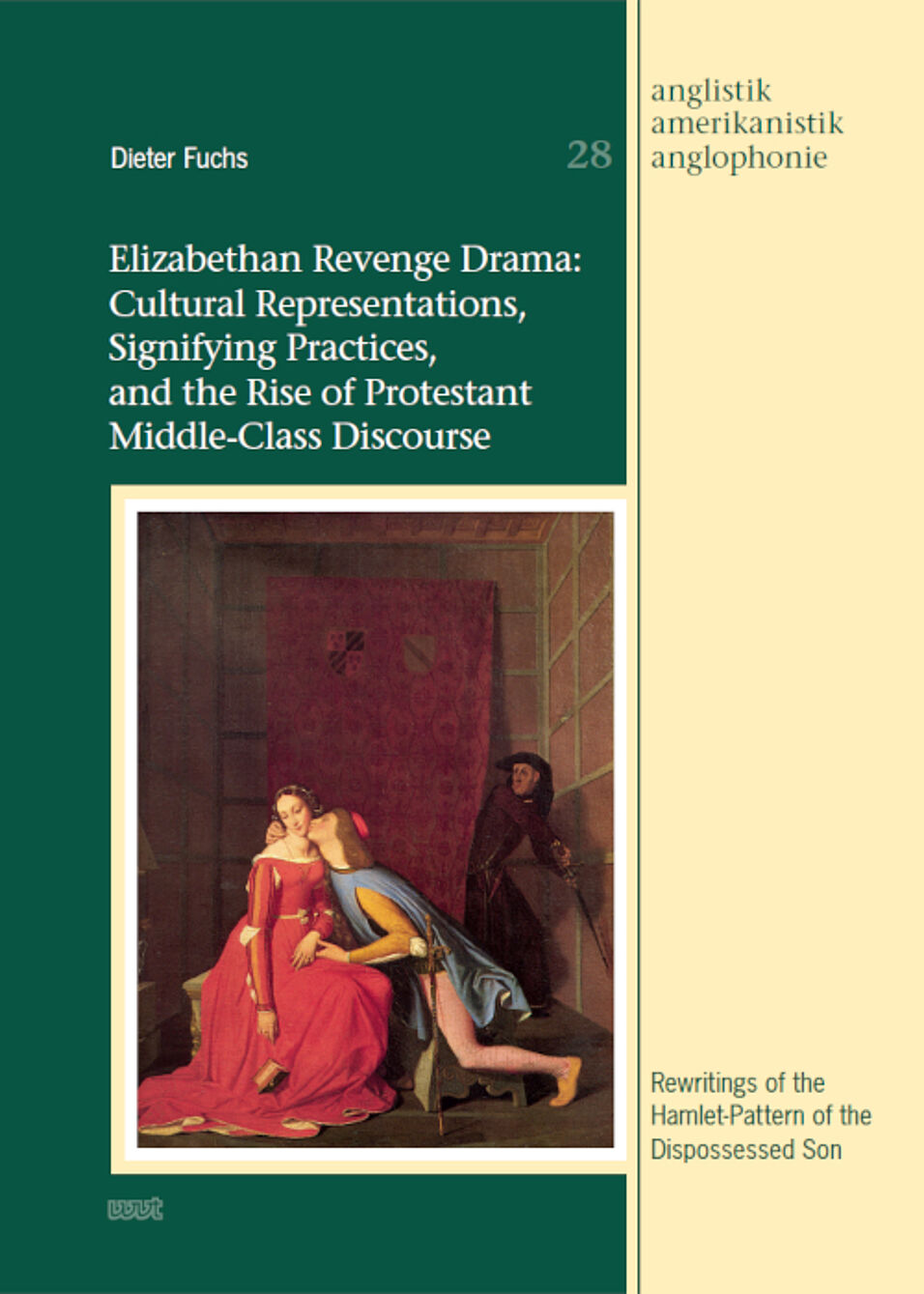Fuchs, D. (2022). Elizabethan Revenge Drama: Cultural Representations, Signifying Practices, and the Rise of Protestant Middle-Class Discourse: Rewritings of the Hamlet-Pattern of the Dispossessed Son. WVT. Anglistik - Amerikanistik - Anglophonie Band 28
Focusing on Pikeryng’s Horestes, Kyd’s The Spanish Tragedy, Shakespeare’s Titus Andronicus and Hamlet, Marston’s Antonio’s Revenge, and Chettle’s The Tragedy of Hoffman, the present study shows that Elizabethan revenge drama reflects the archetype of the dispossessed son to articulate a crisis of cultural representation.
This crisis may be attributed to an authority struggle within the Elizabethan state apparatus: the class-related competition of the representational codes of England’s old feudal elite, the upstart courtly aristocracy, and the emerging Protestant middle classes. Feudal authority, represented by patriarchal lineage and filial primogeniture, faces a twofold challenge in this context: first, by aristocratic Self-Fashioning, which represents authority via theatrical spectacles of power as an artificially constructed (and thus, unreliable) reality-effect; second, by the rise of the Protestant middle classes, who attribute absolute truth and authority to God’s word written down in the Bible to keep the unreliability of aristocratic performances of meaning in check.
Elizabethan Revenge Drama shows that the dramatic debate of revenge fused with the dispossessed son archetype offers a bricolage-like makeshift language to address this authority struggle, which – in the time span of becoming ‘real’ – escaped semiotic and discursive representation. Functioning as sociocultural laboratories, Elizabethan revenge plays debate all kinds of imaginable scenarios of how this representational crisis may turn out and affect the future.
Dieter Fuchs is an associate professor in Anglophone Literatures and Cultural Studies at the Department of English and American Studies, University of Vienna.

